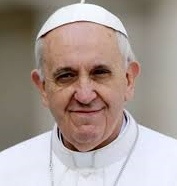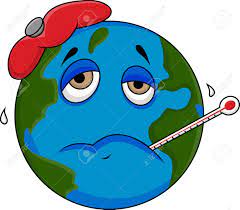An Antidote to Indifference and Helplessness
Google Image
The bizarre storm that spawned December
tornadoes and raged across the upper Midwest recently followed an equally
freakish series of December tornadoes that 10 days before cut a devastating,
250-mile path through northeast
Arkansas, southeast Missouri, northwest Tennessee and western Kentucky, killing
at least 70 persons.
All this followed last August’s disastrous derecho across the Corn Belt, which the National Oceanic and Atmospheric Administration (NOAA) calls “the most costly thunderstorm disaster in U.S. history,” estimating damage at $7.5 billion, higher than many hurricanes.
The middle of the country is hardly alone in experiencing unheard-of weather events. They’re happening around the world. Scientists lack enough evidence, from what I’ve read, to attribute the storms and tornadoes to global warming, but it’s the prime suspect.
No doubt exists among scientists about what’s happening at the earth’s poles.
Steady, Ongoing Warming
“The Arctic experienced its seventh warmest year on record in 2021 — not a record breaker, but a testament to the region’s steady, ongoing warming,” according to a website called Greenwire. “It’s the eighth year in a row that temperatures in the Arctic have hovered at least 1 degree Celsius (that’s about 1.8 degrees Fahrenheit) above the long-term average.”
Said NOAA Administrator Rick Spinrad: “The trends are consistent, alarming and undeniable. Rapid and pronounced warming continues to drive the evolution of the Arctic environment.”
Warming at the poles, say scientists, will likely cause a rise in sea level that could cause great damage on the world’s coasts and perhaps change or even eliminate ocean currents that are already slowing.
 |
| Google Image |
I’ve written often about global warming in these blogs and have reason to suspect they are met with indifference from many readers. And many undoubtedly have a feeling of helplessness. “It may be a problem, but what can I do?” is a widespread feeling, I believe.
Many readers may recall that Pope Francis, believing that care for the earth is a religious obligation, in 2015 wrote a historic encyclical about “caring for our common home,” called Laudato Si. The Vatican is now following up with a program designed to help people “stave off catastrophic global warming.”
You don’t have to be a Catholic to follow it and doing so may help you eradicate the feeling of helplessness. Many scientists and religious people agree that humans to a large degree caused the problem and humans can solve it. The program is a collaboration of the church with “all men and women of good will.”
Read More and Enroll
So go to the website laudatosiactionplatform.org. You can read more about the program and enroll.
The program “aims to spark a cultural shift away from exploitation of the planet and its resources to a focus on preservation for the sake of present and future generations,” according to the website, “during a decade scientists say is critical to rein in greenhouse gas emissions.”




Comments
Post a Comment